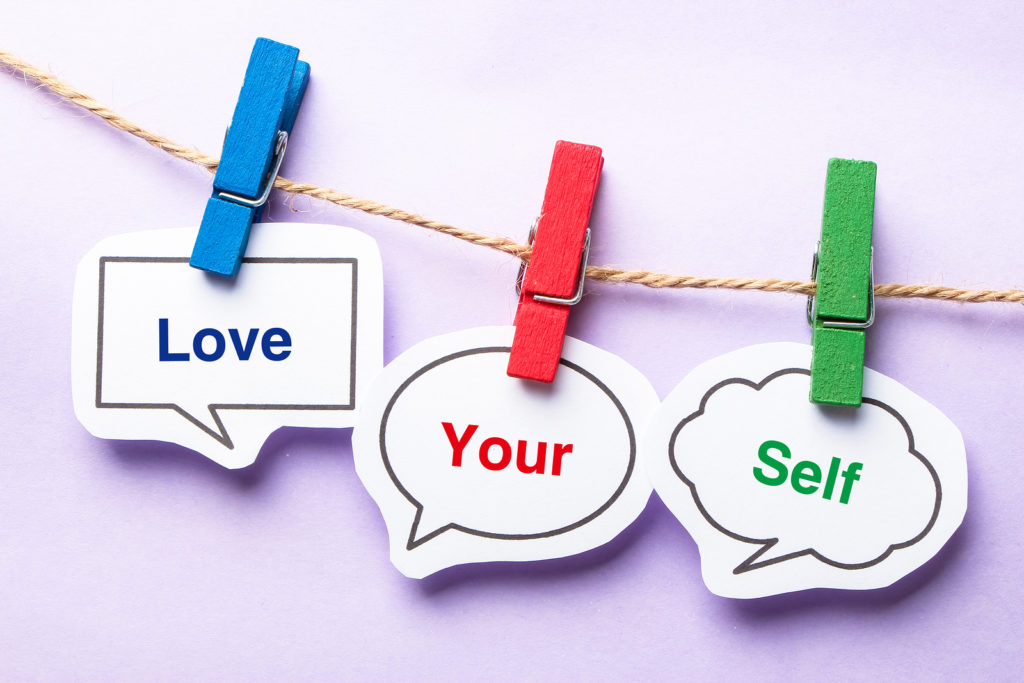
Choosing self-compassion can change your life. It can be the difference between surviving and thriving, and between isolation and connection.
Being more kind to ourselves is something every person can identify with. Who hasn’t struggled with overly high expectations or perfectionism? Who doesn’t have an ‘inner critic’ piping up once in a while? We tend to be harder on ourselves than anyone else could ever be, and it keeps us from being our best, most fulfilled and most loving selves. It boils down to this:
Choosing self-compassion means
accepting yourself with an open heart.
“To accept ourselves with an open heart. To treat ourselves with the same kindness, caring and compassion we would show to a good friend, or even a stranger for that matter. Sadly, however, there’s almost no one whom we treat as badly as ourselves… Compassion is not only relevant to those who are blameless victims, but also to those whose suffering stems from failures, personal weakness, or bad decisions. You know, the kind you and I make every day.” (Self-Compassion – The Proven Power of Being Kind to Yourself, by Kristin Neff, Ph.D.)
I can relate. The voices of perfectionism and self-judgment make themselves heard. I sometimes hold myself to ridiculously high expectations. I have great compassion and understanding for those who are struggling, and less for myself.
How does perfectionism rear its ugly head for me? It can be something as insignificant as a typo in my newsletter, or as important as a seemingly innocent remark that (temporarily, thank goodness) impacted a relationship. That one took way too long to work through. How could I be so thoughtless? Although I knew that ‘what she heard was not what I meant’, forgiving myself for my piece in it took time. Perfectionism and the double standard had struck again.
There is an inherent contradiction in perfectionism. Among the reasons we want to achieve at a high level is to feel worthy and accepted. We want to feel close to others and to have a sense of belonging. When we fall short, we feel separate and disconnected. When we feel inadequate we hide, and we feel more alone. This is compounded by living in a culture that emphasizes being unique. We compare ourselves to others, looking for an edge. The reality is that we are more alike than not, yet we’re too busy trying to stand out to see this.
When expectations are unreasonable
choosing self-compassion is impossible.
There’s nothing wrong with high expectations… unless they are unreasonable. That is where many of us get stuck. Mistakes are part of the human condition and we are all human. Dr. Neff goes on to say, “If we can compassionately remind ourselves in moments of falling down that failure is part of the shared human experience, then that moment becomes one of togetherness rather than isolation.”
What does self-compassion have to do with parenting and your children? Everything. Let’s begin with you.
Did you say something you regret to your child? Give yourself a hug, make amends and help him understand your thought and feeling process. This will help him understand his own, too.
Were you inconsistent? Did you lose your cool? You’re human. Humans feel strong emotions and make mistakes. Revisit it when you are calm and know what you want to say and how to say it.
Do you feel like a terrible parent because other families seem to have it all together? First of all, remember that everyone has a story, and you only see what they let you see. (A family without any struggles doesn’t exist.) Here’s where choosing self-compassion goes a long way. Stop comparing. Gently acknowledge how challenging parenting can be, and that you did the best you were capable of in that moment.
Now what about your kids? Of course you respond to them with compassion (and accountability, too, when it’s called for). More important, though, is helping them to learn self-compassion, just as you are doing for yourself.
Their lives are filled with stress and anxiety over school, social relationships, future goals and their need for acceptance and belonging. With all that pressure, they are constantly self-judging and comparing themselves to others.
They have also been filled with the message that above all, they should seek to be happy. We already know that this is not realistic, is even harmful. “If I’m supposed to be happy, what do I do when I’m not?” I believe that this is a factor in teens self-medicating and self-harming with drugs, alcohol, cutting and eating disorders. These are coping skills, albeit unhealthy ones.
What if our kids were choosing self-compassion instead of self-criticism? What if they could feel more connected instead of feeling alone? Imagine them being more calm and at ease, feeling more secure with who they are, including the imperfect parts.
This is what I would choose for my children, and am working on for myself. Instead of judgment, acceptance, and instead of perfectionism, self-compassion. I invite you to leave a legacy of choosing self-compassion.
